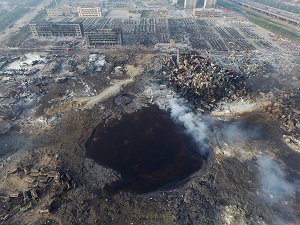
From Disasters To Reform
The horrifying explosion in the warehouse of Binhai has left the world aghast but deeply sympathetic at Tianjin’s misfortune. With social media relaying around the world videos of the explosion’s brutal destructive power from multiple angles, it has held people transfixed. Where once such events were subheadlines or submerged deep in the World News section of newspapers, now citizen-observer videos now give catastrophes far greater immediacy and visibility. We all feel affected in a way that once was not possible.
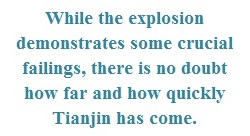
This is mostly for the best, but not entirely so. The speed of communications demands immediate responses and immediate answers in a way that isn’t always possible. There is also the miscomprehension that comes from different cultures and levels of development assuming each other’s legal, cultural and economic cultures will be carry across. People in developed nations forget, or may not be aware of, the deeply-embedded matrix of laws, culture, regulations, behaviors and history which combine to create a society with a high level of economic development and human attainment. Ignorance of these invisible benefactors can be observed in the way that some people actually campaign against vaccines – such is their unfamiliarity with the dangers of the diseases the vaccines had largely eradicated – or how some protest against “government” in general, blissfully unaware that that state of nature, without government, is as Hobbes said,“poor, nasty, brutish and short”. (For a stateless society, have a look at living conditions in Somalia. Closer to home, China’s period of ‘rule’ by warlords followed the collapse of its governance).
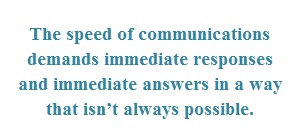
With economic development goes – if a government has the slightest competence – legal, social, and cultural progress. Education improves, health indicators improve, longevity increases. As human development increases, so the matrix of protections and freedoms afforded by the state deepens. This is what it means to be developed. States which are wealthy but lack basic protections, such as the Arab oil states, will always lag behind more advanced states even though they lack such natural blessings, such as New Zealand or Finland, in their attractiveness and geopolitical status. The struggle to develop, to be sure, can be slow and painful. Some governments have to be dragged kicking and screaming into a better way of working; but some are more active, and are to be commended.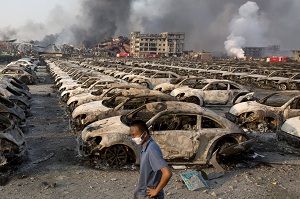
With Tianjin’s rapid economic development, the city is an avatar for China’s growth and reform. TEDA’s broad streets and pleasant restaurants are a shining example of how the country is progressing. But it takes more than architecture and landscaping to demonstrate real progress. It is in the matrix of laws, culture and behavior that develop a society that genuine development can be measured. And while the explosion demonstrates some crucial failings, there is no doubt how far and how quickly Tianjin has come. Home to more Fortune 500 companies than Shanghai, known for its care of its historical architecture, boasting the renowned Nankai University, and recognized for its livability, Tianjin is clearly blossoming. There may be setbacks, but it’s how you recover that demonstrates your character.
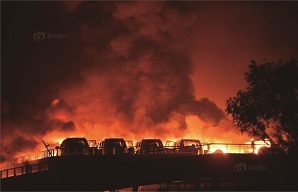 With disasters come the painful lessons. There are always in fierce clarity in hindsight, but human nature is such that only catastrophes have a way of really focusing society’s mind on the subject. I am old enough to remember the 1988 Piper Alpha disaster, where 167 men perished when an oilrig in the sea north of Scotland exploded. No matter that the UK’s economic well-being was then largely thanks to the oil boom, or that the rig alone accounted for around 10% of total North Sea oil and gas output: safety procedures were routinely ignored, and the rig itself, aging and under-maintained, was known as a death trap. When the rig caught fire, those in command onshore refused to shut a pipeline carrying oil through the rig to refineries onshore (for fear of interrupting supplies), causing an enormous fireball and the collapse of the entire platform. Following an enquiry by Lord Cullen, the North Sea oil industry has greatly improved its safety record and now is recognized as the safest in the world. But it took a disaster to get to that point. The history of industrial development is (perhaps too often) one of reform after laxity. We can be sure that Tianjin will reform, too.
With disasters come the painful lessons. There are always in fierce clarity in hindsight, but human nature is such that only catastrophes have a way of really focusing society’s mind on the subject. I am old enough to remember the 1988 Piper Alpha disaster, where 167 men perished when an oilrig in the sea north of Scotland exploded. No matter that the UK’s economic well-being was then largely thanks to the oil boom, or that the rig alone accounted for around 10% of total North Sea oil and gas output: safety procedures were routinely ignored, and the rig itself, aging and under-maintained, was known as a death trap. When the rig caught fire, those in command onshore refused to shut a pipeline carrying oil through the rig to refineries onshore (for fear of interrupting supplies), causing an enormous fireball and the collapse of the entire platform. Following an enquiry by Lord Cullen, the North Sea oil industry has greatly improved its safety record and now is recognized as the safest in the world. But it took a disaster to get to that point. The history of industrial development is (perhaps too often) one of reform after laxity. We can be sure that Tianjin will reform, too.
--- END ---